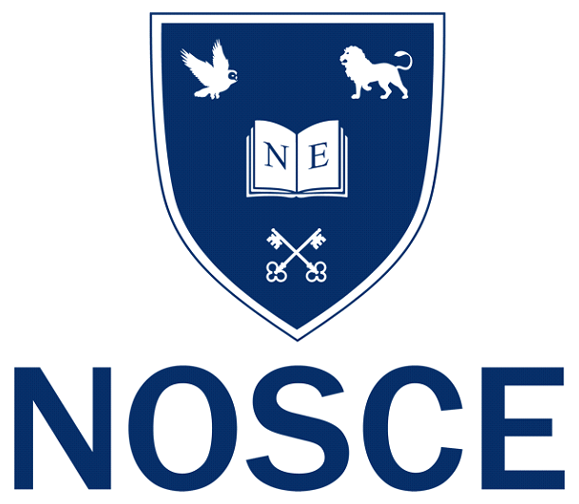16+ Admissions

Here is a detailed guide to the 16+ entry process for independent schools, outlining the steps, stages, and requirements to gain entry into Sixth Form. It includes the examination process, preparation strategies, and specific examples from well-known schools.
The 16+ entry is the main admission point for students joining independent school Sixth Forms (Year 12). Candidates typically apply while in Year 11, with entry focused on academic aptitude in subjects they plan to take at A-level or for the International Baccalaureate (IB). Admissions are highly competitive, as Sixth Form places are often limited.
Registration
•Candidates must register with their chosen school at least one year in advance, typically in the autumn term of Year 11.
•Registration deadlines vary, but October–November is standard. Late applications are rarely considered.
The process is open to students already in the UK independent or state system, as well as international applicants. Many schools seek academically driven students who can contribute to their broader community.
1. Written Entrance Examinations
Students are tested in the subjects they intend to study at A-level or IB. Some schools also include general skills or reasoning tests.
1.Subject-Specific Exams:
•Focus on GCSE-level content in subjects such as Maths, Sciences, English, or Humanities.
•For competitive schools, these exams may include advanced-level questions requiring deeper subject knowledge and analytical skills.
2.Reasoning or Aptitude Tests (if applicable):
•Some schools test verbal reasoning, non-verbal reasoning, or critical thinking to assess overall intellectual ability.
3.General Knowledge (less common):
•Tests may evaluate awareness of current events or cultural literacy.
2. Predicted GCSE Grades and School Reports
•Schools request predicted GCSE grades as part of the application.
•A strong academic profile is essential, often with a requirement of 6–8 grade 7–9s (A/A)*, depending on the school’s selectivity.
•School references play a crucial role in highlighting the candidate’s academic strengths, work ethic, and character.
The interview process evaluates the student’s motivation, intellectual curiosity, and suitability for the school’s academic and extracurricular environment.
•Academic Interview: Focuses on subject choices for A-level or IB, with questions testing deeper knowledge and enthusiasm.
•General Interview: Explores the candidate’s goals, interests, and potential contributions to the school community.
• Successful applicants may receive a conditional offer, contingent on achieving specific GCSE grades.
•Scholarships or bursaries may be available for outstanding academic, artistic, or athletic achievement.
Examples of 16+ Entry Procedures at Leading Schools
St Paul’s School, London
1.Registration Deadline: Mid-October of Year 11.
2.Entrance Tests: Students sit papers in their chosen A-level subjects in November.
3.Interviews: Shortlisted candidates are invited for interviews in December to assess depth of knowledge and interest.
4.Offers: Conditional on GCSE results, with a minimum of eight grade 8s or 9s required.
Eton College
1.Registration: Applications close in late September.
2.Examinations: Subject-specific tests covering both GCSE and advanced-level content.
3.Interviews: Focus on subject passion and future aspirations.
4.Scholarships: Offered for exceptional academic performance.
Winchester College
1.Registration: October deadline for international and UK candidates.
2.Tests and Essays: Includes written exams in proposed A-level subjects, critical thinking tasks, and a general essay.
3.Interview: Explores academic interests, problem-solving skills, and cultural engagement.
4.Offers: Conditional upon achieving at least six grade 8/9s.
1. Core Academic Subjects
•Mathematics: Assesses algebra, geometry, and problem-solving.
•Sciences: Subject-specific tests in Biology, Chemistry, and Physics.
•Humanities: Includes History and Geography with essay-based questions.
•Languages: Written and oral components for Modern or Classical Languages.
2.Optional Subjects (depending on school):
•Art portfolios, Music theory, or Drama auditions may be required for creative subjects.
3.Reasoning Tests
•Logic puzzles, pattern recognition, and data interpretation are used in reasoning assessments.
Subject-Specific Preparation
•Review GCSE Content: Ensure a thorough understanding of the GCSE syllabus in chosen subjects.
•Practice Past Papers: Schools may provide sample papers or past exams. Use these to familiarize yourself with question styles and timings.
•Advanced Knowledge: For competitive schools, explore topics slightly beyond GCSE level to demonstrate readiness for A-level studies.
Interview Preparation
•Academic Interviews:
•Revise key topics in your chosen subjects.
•Be ready to explain why you’ve chosen certain subjects and how they align with your future goals.
•General Interviews:
•Be prepared to discuss extracurricular achievements, hobbies, and current events.
•Practice speaking confidently and articulately.
Timelines for Preparation
•12 Months Before: Register and gather application materials. Begin broad preparation.
•6–9 Months Before: Focus on targeted revision for subject-specific exams.
•3 Months Before: Conduct mock exams and interviews to build confidence.
1. Importance of Extracurriculars:
Schools value candidates who are well-rounded. Emphasize leadership roles, creative pursuits, or volunteer work in your application.
2.Scholarships and Bursaries:
Research opportunities for financial assistance based on academic or extracurricular excellence.
3.International Applicants:
Many schools offer online exams or interview options for overseas candidates. Ensure early application to account for logistics.
4.Balancing GCSEs and 16+ Prep:
Maintain focus on GCSE performance, as strong grades are essential for securing offers.
With detailed preparation and a clear understanding of each school’s process, candidates can approach the 16+ entry with confidence. Let me know if you’d like specific advice or access to past papers for a particular school!
